Michael Elliott's Blog, page 10
March 3, 2024
Welcome to the Mixtape
Thanks for making this space part of your day. I hope to make it worthwhile whenever you stop by.
Pretty soon, this will be my new home on the internet. I’ll be moving all my stuff over here. Articles, posts, links to pieces I wrote for other publications, etc.
Why “The Mixtape”?As far back as 12 years old, I’ve been fascinated with making mixtapes. I began, like many others in my generation, by recording songs off the radio. Then I got a little obsessive. I started recording...
March 1, 2024
Terry Anderson and the Olympic Ass-Kickin’ Team: Back and Stronger Than Ever
The OAKTeam deliver their best album in years - maybe ever - with Got to Be Strong.
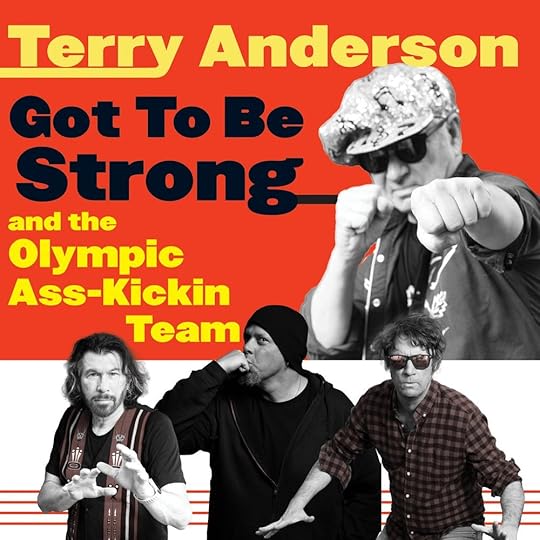
“I moved next to a chainsaw repair shop / I couldn’t believe the rent was so cheap.” So opens the new album from Terry Anderson and the Olympic Ass-Kickin’ Team, Got to be Strong. “Chainsaw Repair Shop” takes a one-liner worthy of Henny Youngman and stretches it over two-and-a-half minutes of glorious rhunka-rhunka rock’n’roll. It’s the kind of noise the OAKTeam can make in their sleep, but it’s the perfect way to reintroduce one of the best all-out rock’n’roll bands the Tar Heel State has ever produced.
Got to be Strong emphasizes that TA and the OAKTeam are so much more than rhunka-rhunka, however. After the fist-pumping opener, almost as if they’re getting the rawk out of their system, the OAKTeam settles into their front-to-back overall best album ever. Anderson’s pen and drums guide the band through some of the strongest power pop - with a sprinkle of soul and R&B - they’ve ever committed to tape. This is punctuated by “Best Day Ever”, the most the OAKTeam has ever sounded like their heroes, NRBQ, but centered with Anderson’s signature cleverness.
Elsewhere, it’s obvious that the fun they had paying tribute to ELO during (local Raleigh bar) King’s annual Great Cover Up transitioned to the studio for “Magnificent”, whose chorus rings like one of Jeff Lynne’s best unused ideas. Shades of Cheap Trick and Big Star are heard in gems like “My Bandana” and “Doesn’t Exist”, respectively.
Throughout Got to Be Strong, what’s apparent is the OAKTeam has deepened and expanded their sound, without sacrificing what makes them such a powerful yet lovable unit. Different textures are used. “Box Wine Row” is propelled by Dave Bartholomew’s hypnotic two-chord guitar stab that underscores the nostalgic sorrow in the lyric. Closer “Ride Along”, well, rides along cheerily on a George Harrison-esque slide guitar line.
Anderson’s vocals are also the best they’ve ever been, as he digs down deep to his lower register on the ballads, a side rarely heard on record before now. Greg Rice fills spaces with the taste and agility of Ian McLagan, while Jack Cornell is as reliable as ever on the low end and in the producer’s seat.
The highlight is the title track. The legendary Don Dixon shows up to tag team with Anderson on a song that’s pulled right from the studios of Memphis. It acts as the missing link between Stax and Royal, two of that city’s most soul-filled houses. You can tell they’re having a blast as they Sam-and-Dave it up to Southern Soul Heaven.
Ultimately, having a blast is what the OAKTeam is all about; Got to Be Strong proves it, and we’re all the better for it.
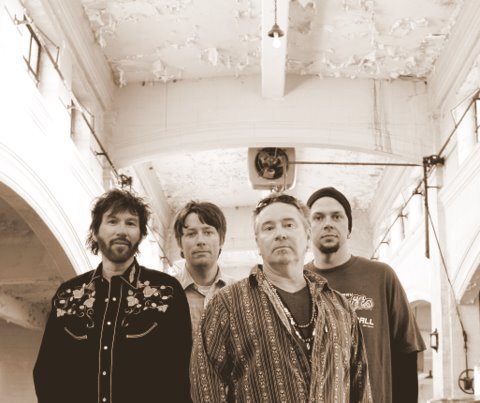
The Olympic Ass-Kickin’ Team (l-r: Jack Cornell, Greg Rice, Terry Anderson, Dave Bartholomew)
February 10, 2024
Mojo Nixon 1957-2024
One of the last true believers of the power, glory, and fun of rock’n’roll has left the building.

Photo by J. Cris Yarborough
The punch was as sudden as it was unexpected, landing with fierce and impressive accuracy. Its target was just to my left, close enough to where I felt the wind from Mojo Nixon’s fist.
It was a sweaty and packed night in the middle of the 1990s at the Cat’s Cradle in Carrboro, NC. Mojo was touring behind his then-new release, the Eric “Roscoe” Ambel-produced Whereabouts Unknown. Before the laying of hands, the guy near me had been heckling the headliner over “Mr. Correct.” Sounding like a manic Highway 61 Revisited outtake, it was another of Mojo’s many rants against censorship and groupthink that sounds just as fitting now as it did then, if not more so. Before launching into it, Mojo unleashed a verbal assault upon Newt Gingrich, the Speaker of the House at the time and one of the architects of the “Contract With (On?) America”. The guy beside me took umbrage and started yelling, “What’s wrong with Newt? I love Newt! Go Newt!” He shouted “Go Newt” continuously between the next few songs whenever there seemed to be a quiet moment. Fueled by the pure adrenaline of rock’n’roll, Mojo unleashed a fist of fury upon him, then kept on with the show. It was one of the most punk rock moments I’ve ever witnessed first-hand. Only Mojo wasn’t punk rock, except when he was.
Mojo Nixon occupied that rare space that existed between Elvis Presley and the Beat Farmers, Howlin’ Wolf and Bruce Springsteen, Arthur Conley and Roy Acuff, James Brown and David Johansen, Doc Watson and Iggy Pop, the Carter Family and Patti Smith. It was an irresistible gumbo of rockabilly, soul, gospel, country, blues, and punk.
Along with his trusty washboard-wielding, bicycle-bell-beating sidekick Skid Roper, Mojo released four LPs (and one EP) of righteous rock’n’roll. My first exposure was in 1986 through the radio show, “Night Wave” on NC State’s college station, WKNC. The song was “Where the Hell’s My Money” and I was gobsmacked into the great-googly-mooglies. It was the sound, mystery, and attitude of rockabilly but with a punk/new wave awareness that fit in with acts like the Butthole Surfers, the Dead Milkmen (who would soon immortalize Mojo with their single, “Punk Rock Girl”), and others they were airing that night. Although some writers have focused on his humorous songs this week, it wasn’t just novelty music to me. I could tell right away this guy, who I’d soon find out was Mojo Nixon, was a Southern boy like me who knew all about the fire and brimstone delivery of Baptist preachers in small country churches on stifling hot Sunday mornings. During their time together, Skid used a broom handle for a kick drum and his washboard as a snare while Mojo screamed, howled, and raged against everything from MTV and Morrissey to shopping malls while championing mushrooms, Cheez-Whiz, and Wendell Scott.
It was a celebration of NASCAR, monster trucks, classic movies, Foghorn Leghorn, pre-Beatles rock’n’roll (Chuck Berry, Elvis, Jerry Lee), southern soul, John Lee Hooker, and Tom Jones that made me an instant fan. And I later realized why we shared many of the same cultural memories. Mojo Nixon was born Neill Kirby McMillan Jr. on August 2nd, 1957, in Chapel Hill, NC, less than a dozen miles from my birthplace (Durham). He was raised in Danville, VA, a little over an hour northwest of where I grew up, in Oxford, NC. It was a region of go-kart tracks and racetracks, both dirt and paved. There was the South Boston Speedway and the Roxboro Dragway. Rural farmland surrounded small to medium-sized towns as working-class families were brought up to be civic-minded and church-going.
Mojo took what he learned from Pittsylvania County on to London after college on a punk rock pilgrimage. He eventually returned to the States and settled in San Diego, where he teamed up with percussionist Skid Roper. Combining the blues and rockabilly of his youth with the roots-based West Coast psychobilly/cowpunk movement, he and Skid recorded their self-titled debut album for Enigma Records in 1985. Listening to in my room in Oxford, North Carolina at the time, my 16-year-old self identified with his references and shout-outs. I also realized that although he was 13 years older, Mojo confirmed that my taste in music, etc wasn’t weird, at least by his standards, which was all the validation I needed.
Yes, Mojo was hysterical, but he could also be downright poignant. Take a song like “High School Football Friday Night.” It deftly describes those fall evenings and what they were like, not only for us outcasts in football-obsessed small southern towns but anyone anywhere who spent game time smoking and drinking out in the parking lot … while listening to it on the radio, of course.
Mojo never got enough credit for his songwriting. Here, he even reaches back for a little of that civic pride from his youth. And no matter what anyone says, I’ll put “The world seems right when the wrong kid goes the right way for 90 yards” up against lines by Townes Van Zandt, or at least Todd Snider, any day.
Yes, “Elvis is Everywhere” is what most people remember, but Mojo was so much more. There’s also “Positively Bodie’s Parking Lot” from that same album (Bo-Day-Shus!!!) that celebrates a legendary dive bar in all its glory, warts included. Those of us who spent years in similar night spots (as part of a band, as a DJ, a bouncer, as a patron - or all the above) can, and do, relate.
For my money, it’s the line toward the end: “‘Be Young, Be Foolish, Be Happy’ blastin’ out of the jukebox.” Growing up close to the North Carolina/Virginia line Mojo understood not only southern soul and R&B but its coastal sub-genre, Carolina Beach music. And he took that knowledge and appreciation out to San Diego, LA, and eventually on to MTV, sometimes working it into his manic psychobilly rave-ups. What’s 1990’s “Rabies Baby” but a nod to the old days of shaggin’ on the boulevard? (The Carolina, not the British, definition.)
Speaking of MTV…
With their second LP, Frenzy (the one with “Where the Hell’s My Money?”), Mojo got noticed by the culture-shifting cable channel because of “Stuffin’ Martha’s Muffin,” a crude ode to their most famous VJ, Martha Quinn. When the duo performed it in concert, Mojo would don a hollowed-out TV set. He and Skid revisited the routine at their 2012 reunion show in San Diego, CA.
“Stuffin’ Martha’s Muffin” is classic Mojo. It’s ridiculous, but it also railed against the corporatization of rock’n’roll. In true Mojo fashion, however, he was soon showing up in promos for the network (some aired, some didn’t), even appearing as an occasional guest VJ.
Corporate rock was just one of his targets. On Frenzy alone, Mojo raged against financial institutions (“I Hate Banks”), war (“Gonna Put My Face on a Nuclear Bomb”), sleazy club owners (“Where the Hell’s My Money?”), kids (“Im Living With a 3-foot Antichrist”), and - as always - authority figures (“Ain’t Got No Boss”). Initially sold separately, Frenzy was later coupled on CD with the EP Get Out of My Way! On its best track, Mojo turned his ire toward mass consumerism … and Tipper Gore.
Underneath the schtick was a true believer - a lover of all things rock’n’roll, a champion to the underdog and the DIY esthetic. It was fitting that the legendary Dixie Fried Jim Dickinson, produced the duo’s third outing, the perfectly titled, Root Hog or Die, in 1989. Yes, that’s the one that kicks off with the outrageous “Debbie Gibson is Pregnant With My Two-Headed Love Child,” his lampooning of celebrity culture that sounds just as relevant now in the age of TikTok.
Root Hog or Die also included his inevitable “Elvis is Everywhere” follow-up, “(615) 239-KING” that dialed into the recorded phone line craze at the time. (Yes, I called it back then, and, of course, heard a recording of Mojo spouting his evangelic love for the boy from Tupelo).
Among the songs about vibrator dependency. funky fellatio freak-outs, and doo-wop urges to legalize pot, was the aforementioned “High School Football Friday Night” and his more-or-less straightforward take on Woody Guthrie’s anti-fascist anthem, “This Land Is Your Land,” complete with the verse they wouldn’t let us sing in school.
In the middle of the song, Mojo lays out his vision of the future, inviting everyone to visit the amusement park of his mind, “Mojo World.” He then lists everything that makes Mojo Nixon a happy man, and doggone it, if you’ve got any soul, they make you happy, too. When he hits the final refrain, you can’t help but sing along, whether or not you’re standing naked in the blazing sunlight of liberty.
Root Hog or Die was the last album with Skid. Mojo decided it was time to go it alone while simultaneously beefing up his sound. The result was Otis! Recorded in Memphis and partnering once again with Dickinson, Mojo enlisted his fellow rock’n’roll ne’er do wells John Doe of X, Country Dick Montana of the Beat Farmers, Dash Rip Rock’s Bill Davis, and Eric “Roscoe” Ambel. The buzz for the album came from “Don Henley Must Die,” which pretty much says it all right in the title. And yes, Henley did duet with Mojo on the song at Austin’s Hole in the Wall a few years later, if only to try to prove to the world - and maybe himself - that he didn’t have as big a stick up his ass as many people thought.
Unfortunately, Mojo’s longtime label, Enigma, folded soon after, leaving him to flail around for a few years before re-emerging with the on-the-nose-titled, Whereabouts Unknown. With Ambel behind the board, Mojo and his cohorts laid down his overall best-sounding album with some of his strongest material. No reverb, just in-your-face bar band sweat and songs about freedom, football, drinklin’, liberty, hillbilly incest, and more freedom. Oh, and covers of both Elvis and Morrissey, only one delivered reverently (no need to guess which).
In 1997, Mojo released Gadzooks!! The Homemade Bootleg that surprisingly stands as one of the best odds’n’sods comps of the nineties. Its most talk-about song was left off Whereabouts Unknown (possibly for fear of legal retaliation), a sort-of sequel to “Don Henley Must Die” that took aim at one of Henley’s old buddies (and president/namesake of Henley’s label at the time).
He’d close out the millennium with 1999’s Sock Ray Blue! It had a few good moments, like the fun rager that he licensed to a video game, “Redneck Rampage.”
Gadzooks also boasted an outtake from his and Skid’s debut (that was originally included on the cassette version, which I proudly still have). Back in 1986, believe it or not, “Death Row Blues” helped open this 16-year-old’s ears and mind to the Velvet Underground.
When I first heard Mojo and Skid’s debut, opening with “Jesus At McDonald’s” and closing with “Death Row Blues” was genius. We’re talking Zappa-esque continuity. By the end of the cassette, he was back down by the powerlines. Only this time, he wasn’t talking to Jesus about couches and blues records, he was in the backseat with his best girl only to be interrupted by the DJ announcing an execution at San Quentin. It then switches to the first person as the prisoner is ready to die. Is the narrator in the back seat or in the chair? Is he in a VW down by the powerlines only in his mind? Bruce Springsteen’s Nebraska filtered through Tom Jones’s version of “Green Grass of Home” recorded by Sam Phillips. That may be Mojo in a nutshell.
There’s so much more to tell, but elsewhere you can read about his successful third act as a DJ on Sirius/XM’s Outlaw Country and his work with Jello Biafra and his Christmas albums and his bit parts in big-time Hollywood films (ok, not really). This is just a personal appreciation for someone who brought me a lot more joy than I realized until I heard he passed away - on a damn boat - during the Outlaw Country Cruise this week. I guess Elvis needs boats after all.
When I was 17, my dad took me - I think I took my dad, really - to the Rialto in Raleigh to see Mojo and Skid for the first time. The first thing Mojo said when he walked out was, “WHAT’S ALL THIS SITTIN’ DOWN SHIT? THIS AIN’T NO BON JOVI BULLSHIT! GET YO ASS UP!” The crowd proceeded to storm the small stage and he rocked us mightily from there on out. It’s still one of the best shows I’ve ever been to.
Dad didn’t know what to make of Mojo at first, but watching a guy who watched James Brown and the Famous Flames at the Durham Civic Center in 1964 react to Mojo opener, “We Gotta Have More Soul!” is one of the great pleasures of my life. It also made Dad a lifelong Mojo devotee.
Maybe Mojo and JB are up there now giving dad one helluva show, proving once and for all that you can’t kill the spirit of rock’n’roll.
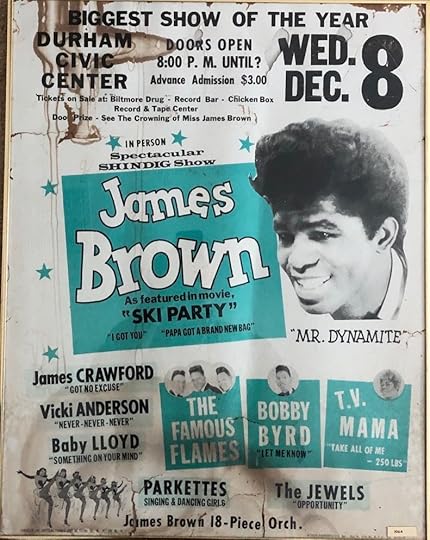
The concert poster dad pulled off the wall at the Durham Civic Center the night he saw JB in 1964. He was the only white guy in the crowd.
BONUS CUT: Here’s a show recorded around the time my dad and I first saw Mojo and Skid. Great googly-moogly…
January 29, 2024
Best of January
A handful of songs and a couple of albums made the year's longest month tolerable.
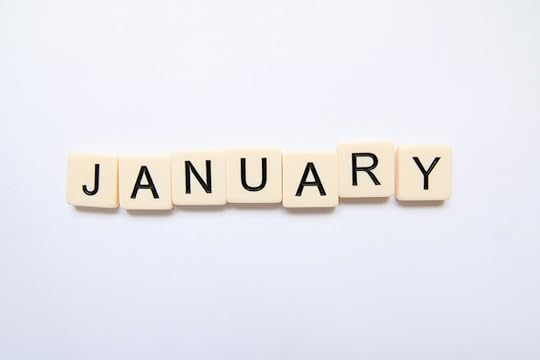 Sarah Jarosz - Polaroid Lovers
Sarah Jarosz - Polaroid Lovers 
The seventh album from the Texas-born singer-songwriter is a journey of self-reflection, sure. But its music and melodies create a mood that keeps you transfixed throughout. Jarosz may be leaning into pop and rock sonics here and there on Polaroid Lovers, but tracks like “Runaway Train” capture the best of country and folk - especially Rosanne Cash (not the same song as her majestic 1987 “Runaway Train, by the way) and Mary Chapin Carpenter’s output as the ‘80s turned into the ‘90s. The best album of 2024 … so far.
Alejandro Escovedo - “Bury Me”What happens when you revisit a song you wrote thirty years ago about your inevitable mortality? The answer lies here: in the first taste of Escovedo’s album of re-recordings, Echo Dancing. Here, the new treatment of “Bury Me” is as knowing as it is haunting.
The Black Crowes - “Wanting and Waiting”Produced by Jay Joyce - who’s helmed big-sounding productions over the years from John Hiatt’s The Tiki Bar is Open to albums by the Wallflowers and Eric Church - “Wanting and Waiting” lands in a sweet spot between the Southern Harmony and By Your Side eras. In other words, fans of the band’s debut, Shake Your Moneymaker, will surely like this.
Brittany Howard - “Prove It To You”You know it’s going to be a good year, at least musically, when Brittany Howard gifts us with a new album (What Now, drops Feb. 9). “Prove It To You” offers just the right amount of ‘90s dance floor chill with an eye on the present.
Katie Pruitt - “White Lies, White Jesus and You”Powerful lyrics ride atop a hypnotic, nocturnal arrangement, this single from Pruitt’s forthcoming album, Mantra, sets a high bar. The video’s knowing nod to 1999’s classic But I’m A Cheerleader is sly and spot on.
Waxahatchee - “Right Back To It” (feat. MJ Lenderman)Katie Crutchfield teams up with MJ Lenderman, fresh from his own acclaimed band, Wednesday (and a burgeoning solo career - see below), to deliver this banjo-driven beauty that would’ve fit right in on Harvest.
The Black Keys - “Beautiful People”At first, “Beautiful People” sounds like business as usual for the Black Keys, but after the last note hits, you’ll be humming it for the rest of the day. Off their forthcoming boldly-titled new album, Ohio Players.
Hooray for the Riff Raff - “Alibi”I’m an unapologetic sucker for this type of song: one that grabs your attention before the chorus even hits but then lifts you higher when it does. An advance track from Alynda Segarra’s forthcoming album, The Past is Still Alive.
Sierra Ferrell - “Dollar Bill Bar”Ferrell previews her new project with an unapologetic two-stepper that brings the cleverness back to country. Yeehaw indeed.
Saxon - “Hell, Fire and Damnation”Yes, it’s Saxon. I had to include the title track from their new album simply because I didn’t know they were still together. The fact that they are is simultaneously comforting and frightening. (Random weird/fun Saxon fact: Elton John played piano on a boogie-metal track on their 1986 Fate of Nations LP. Surely, a highlight of his career.)
MJ Lenderman And the Wind - Live and Loose!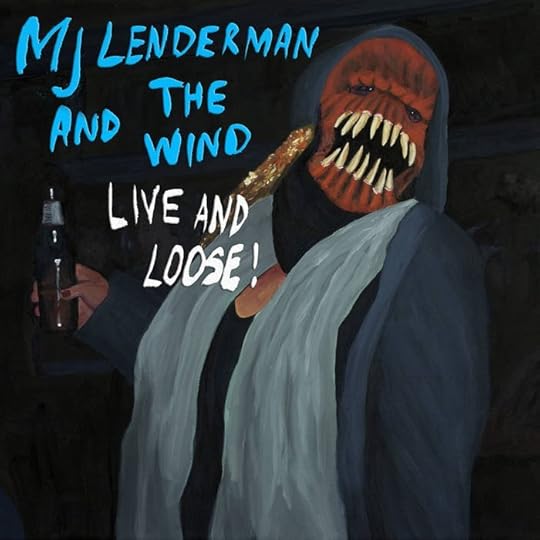
I haven’t made up my mind about this guy. On one hand, this loud and laid-back intensity is refreshing to hear. Plus, the band smokes; sort of a Drive-By Truckers-meets-Kurt Vile-by-way-of-Crazy Horse vibe. On the other, if you’ve ever heard Todd Snider’s late-nineties rock’n’roll masterpiece, Viva Satellite, you’ve heard all of this already, with much better songwriting. Check back with me in a couple of months, though, and he may be my favorite new artist.
Amaro Freitas - “Mar De Cerandeiras”Brazillian-influenced jazz with trance-like repetition and deep, soulful execution, but there’s plenty of Monk here as well.
January 24, 2024
Best of 2023
The albums and songs that brought me the most joy and made a positive impact on my ears in 2023.

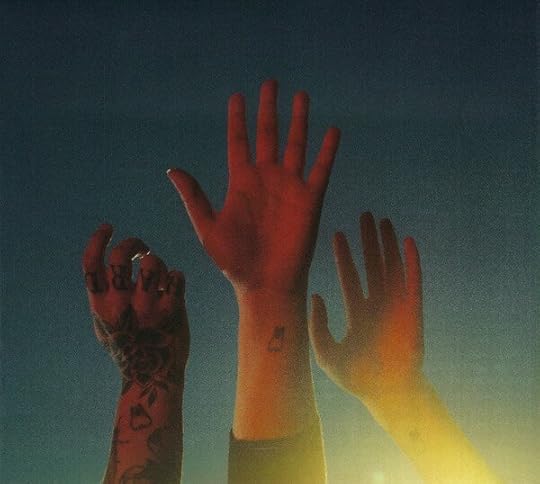



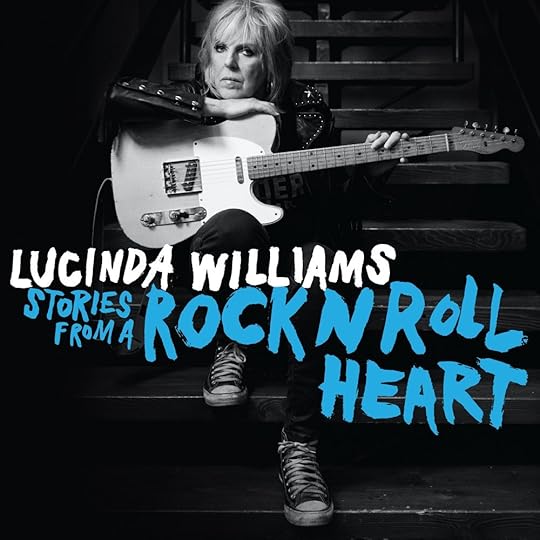




Best 10 Albums:Jason Isbell - Weathervanes
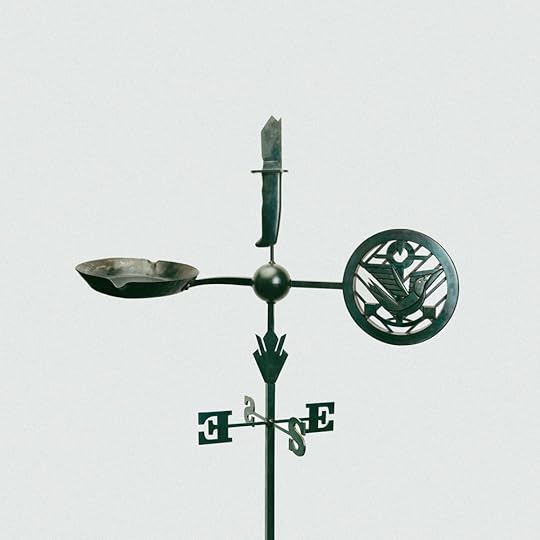
Throughout his career, Isbell has possessed a gift for observing and detailing characters in struggle, against family members, partners, society’s expectations, their own demons. He also understands the power of specificity as well as building drama through storytelling. Read the full review here.
2. boygenius - the record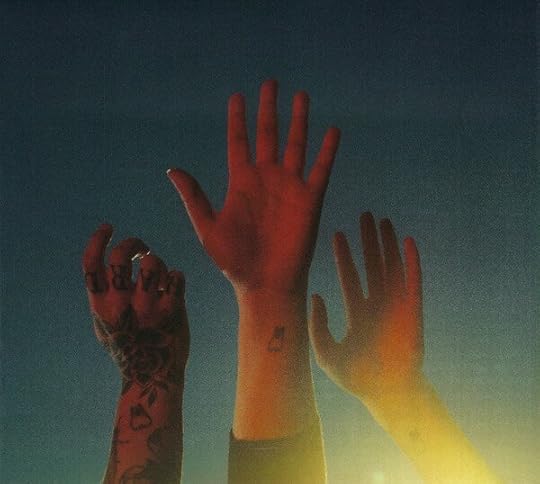
Last year was the beginning of the boygenious era, and we’re all fortunate to be living in it. Seeing Julien Baker, Phoebe Bridgers, and Lucy Dacus interact in interviews, on stage, and - especially - on the record is, quite simply, one of the greatest pleasures of being a music fan in the 2020s.
3. H.C. McEntire - Every Acre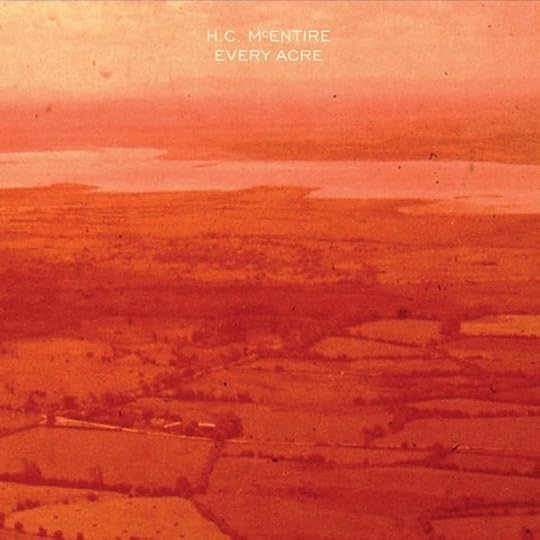
McEntire follows up the enthralling Eno Axis with the even more affecting Every Acre. The best albums create moods and worlds that surround and engulf. McEntire’s music never fails in that regard, but Every Acre opens an even deeper space to discover and explore.
4. Grace Potter - Mother Road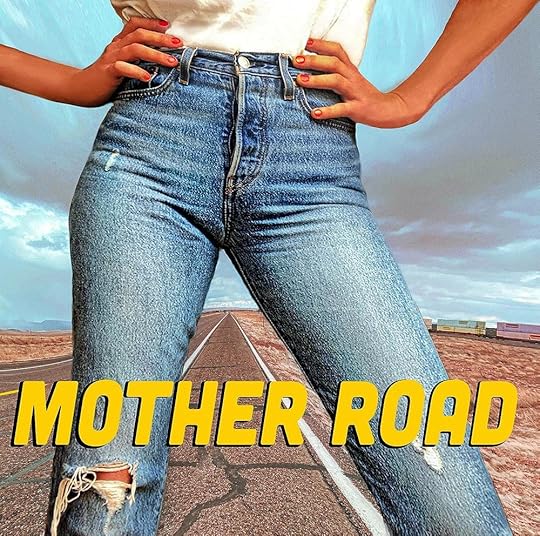
A rock’n’roll album that actually sounds like it’s proud to be one, Motor Road is the most joyous, celebratory album of the year
5. Jenny Lewis - Joy’All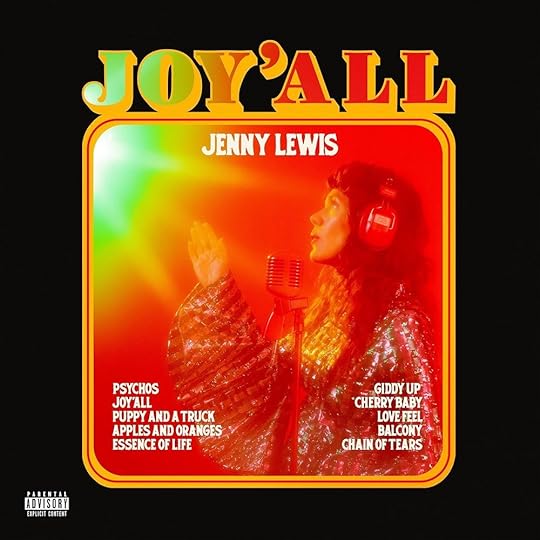
Lewis has crafted a moody late-night take-a-drive album that reinforces her role as one of rock’s most consistent left-field lyrical provocateurs.
6. Lucinda Williams - Stories from a Rock’n’Roll Heart
Stories From a Rock N Roll Heart is music made by the still hungry, by an artist who feels she still has something to prove. Read the full review here.
7. Margo Price - Strays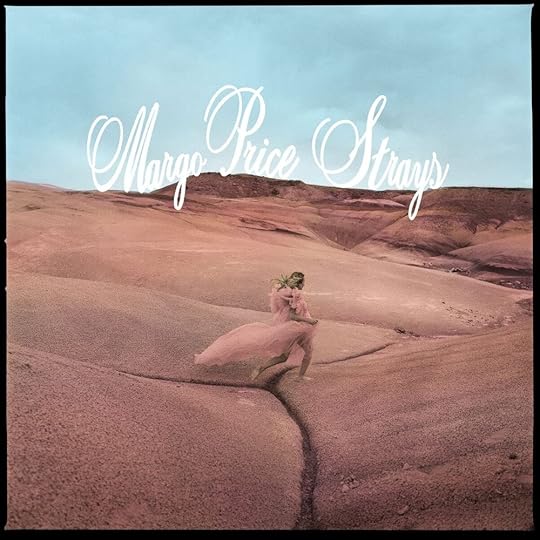
Introspective, universal, trippy: Strays keeps playing in your head long after it’s finished on your sound system. It’s Price’s definitive statement…so far.
8. Allison Rusell - The Returner
Russell’s 2023 release is a culmination of all that came before. It’s a major statement that thrills and surprises, proving she’s an artist whose name deserves to be in the conversation of the best this business has to offer.
9. Joy Oladokun - Proof of Life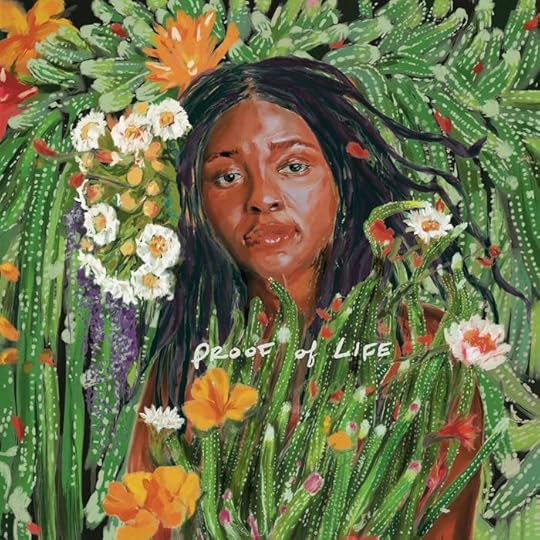
The Arizona-born Oladokun’s fourth album finds her right where she should be; building on each subsequent release by digging deeper and deeper into her soul. In doing so, she weaves lyrics and sound textures that mesmerize and fascinate.
10. Rolling Stones - Hackney Diamonds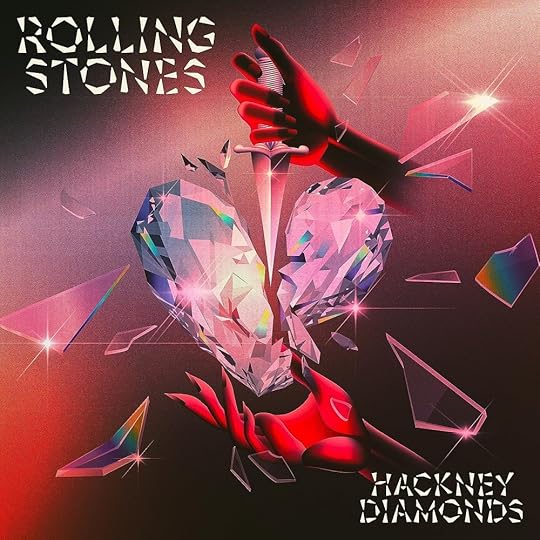
You’d be forgiven if you forget that you’re listening to an 80-year-old great-grandfather while Hackney Diamonds plays. Jagger sneers, growls, and draws out syllables to make his point. He is still the detached romantic; still the vulgar, yet gentlemanly devil still in need of some restraint. Read the full review here.
Bonus Cuts:It was a tough year to narrow it down to just ten…
11. Wednesday - Rat Saw God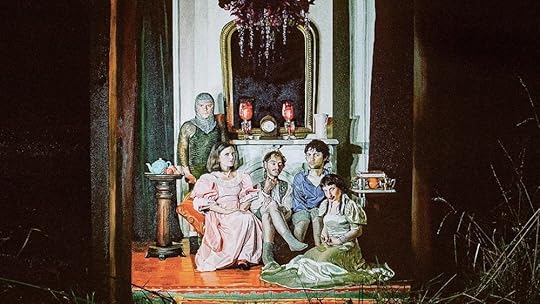
I’m a firm believer that the music that doesn’t grab you right off, that doesn’t sink in until after repeated listening, is the stuff that sticks with you the longest, that burrows deepest into your psyche. Wednesday’s Rat Saw God is the one that snuck up on me this year. Thank goodness I had the patience to accept it.
12. Jerry Joseph - Baby, You’re the Man Who Would Be King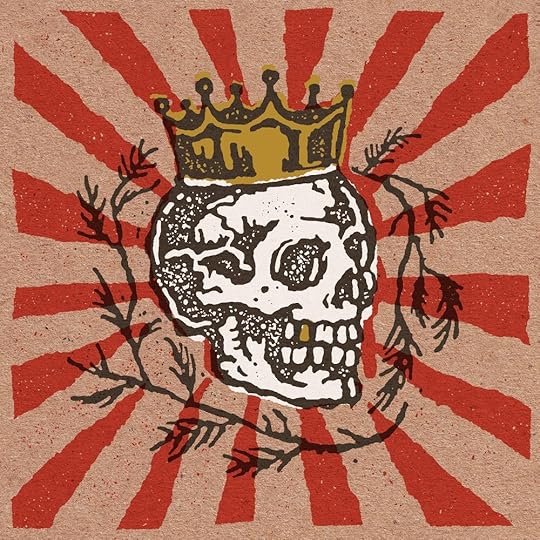
This is Joseph’s best-sounding album to date and contains his most arresting songs. It’s an impressive performance throughout, sometimes sounding like the bastard child of Elvis Costello and Lou Reed while backed by the mid-1970s Rolling Stones. Read the full review here.
13. Durand Jones - Wait ‘til I Get Over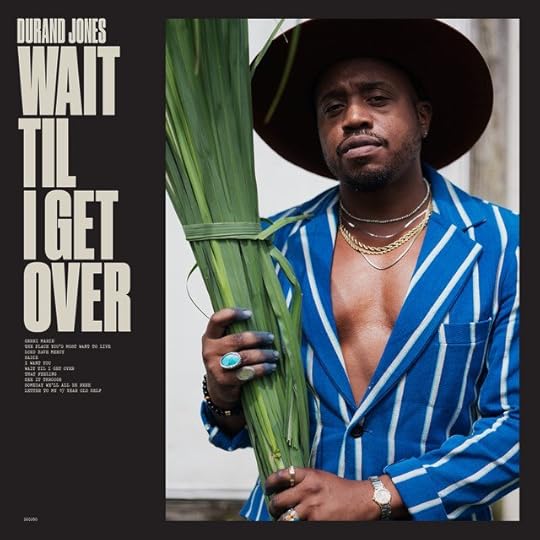
Is it retro? Maybe. Who cares? Louisiana’s Durand Jones puts the Indicators on hold while cooking up a hearty mix of groovy soul/r&b/funk/gospel gumbo that’s as tasty as it is inevitable.
14. Rodney Crowell - The Chicago Sessions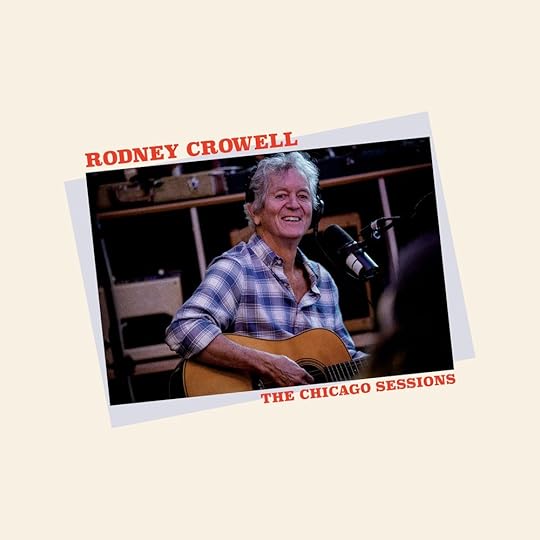
Crowell proves in The Chicago Sessions that both his pen and voice are still as vital as ever. Read the full review here.
15. Thelma and the Sleaze - Holey Water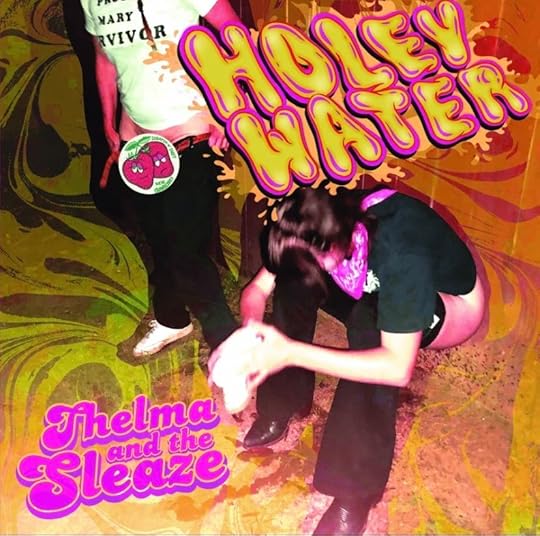
This is rock’n’roll. Full throttle. Not giving a damn what anyone thinks. Holey Water, the third studio album from Thelma and the Sleaze, takes no prisoners and suffers no fools. Read the full review here.
Best Reissues:Various Artists - Written in their Soul: The Stax Songwriter DemosA collection that celebrates those who sat a piano or hunkered over a guitar with a paper and pen, scrawling, singing, strumming, and pounding until inspiration hit, either at home or at 926 East McLemore Avenue in Memphis, home of the Stax Records studio. Read the full review .
2. The Replacements - Tim [Let it Bleed Edition]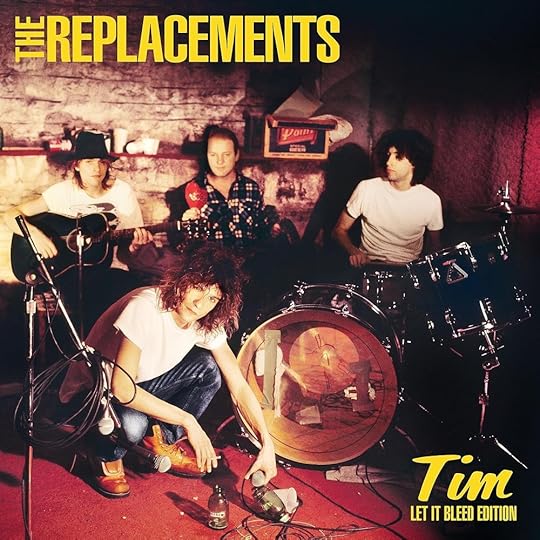
Let’s be honest. Most reissues are for die-hards, those who can spot the difference between a remaster and the original even in passing, while most casual listeners are left wondering what all the fuss is. Tim - The Let It Bleed Edition is a different beast. It strips away the original ‘80s-centric production to reveal the glorious noise and hooks underneath; an essential addition to the Replacements canon.
3. Bob Dylan - Fragments - Time Out of Mind Sessions 1996-1997 The Bootleg Series Vol. 17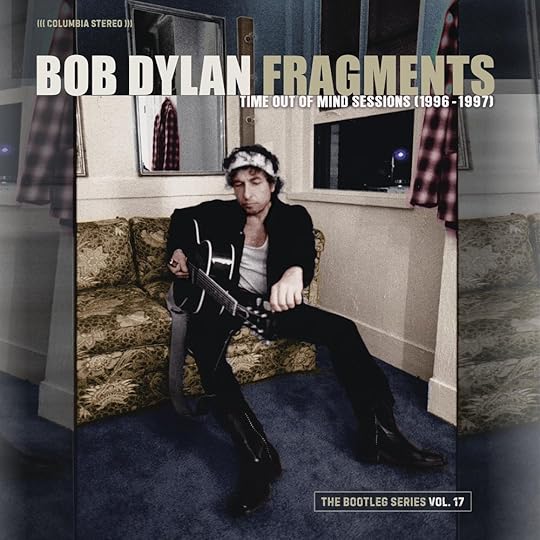
With Fragments, we bear witness to the flood of inspiration that created a classic and rejuvenated a career that, 25 years on, continues to excite and inspire. Read the full review here.
4. Various Artists - Playing for the Man at the Door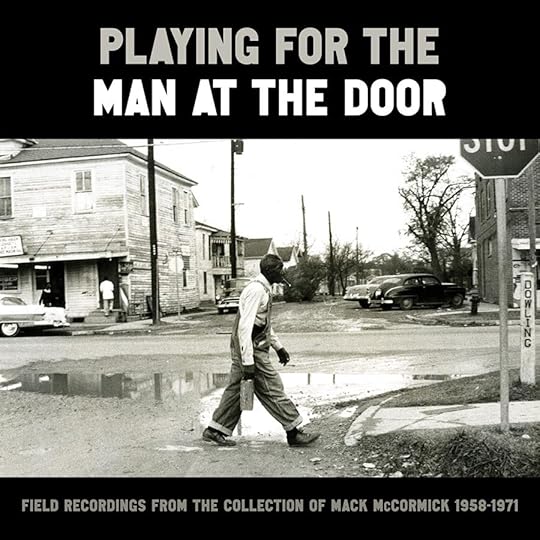
Smithsonian Folkways released this treasure trove from the storied archives of Robert “Mack” McCormick, featuring folk, blues, and roots music from both obscure and legendary artists. There’s much more to come, too, so stay tuned. [For a deep dive into the archive, check out my feature in the Summer 2023 issue of No Depression available for order here.]
5. Joni Mitchell - Archives Vol. 3: The Asylum Years (1972-1975)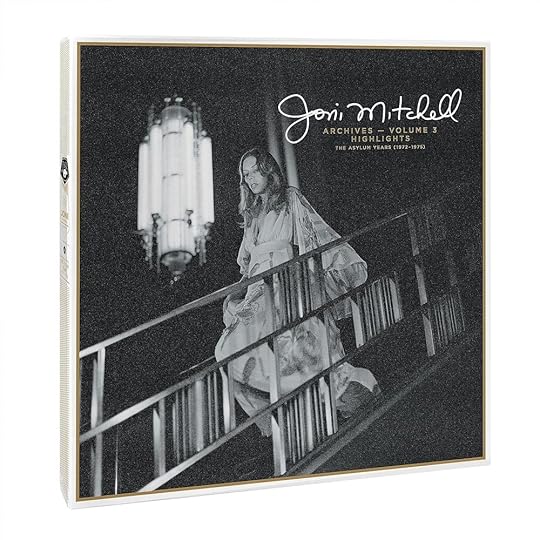
The third installment in Joni Mitchell’s archive series finds the legendary artist in between her Blue and jazz/fusion periods. Among the treasures found are a truly transcendent version of “You Turn Me On, I’m A Radio” with Neil Young and the Stray Gators (below) that could’ve fit in perfectly with Harvest. And that’s just one example.
January 18, 2024
Gonzalez Smith Serves Up Classic AM Gold for the 21st Century
Roll Up a Song harkens back to the glory days of power pop.
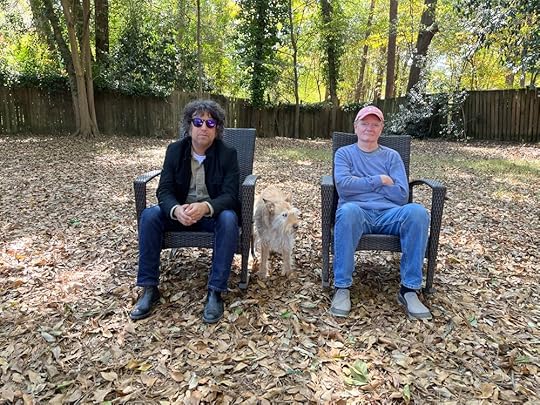
Jay Gonzalez and Pete Smith
Rodgers and Hammerstein, Lerner and Loewe, Bacharach and David, Gamble and Huff, Goffin and King, Taupin and John – the music world is filled with legendary pairings of talented lyricists and their musical counterparts. We can now add Pete Smith and Jay Gonzalez to those sacred ranks.
Pete Smith is a retired comedy writer who helped steer both Space Ghost Coast-to-Coast and its spinoff, the Brak Show, to classic status during the Cartoon Network’s Adult Swim programming block. Jay Gonzalez handles keys and contributes guitar to one of the best rock bands in America, the Drive-By Truckers. The pair have now joined forces, as Gonzalez Smith, to deliver Roll Up a Song, a full-length album’s worth of some of the best straight-up power pop of the last few years.
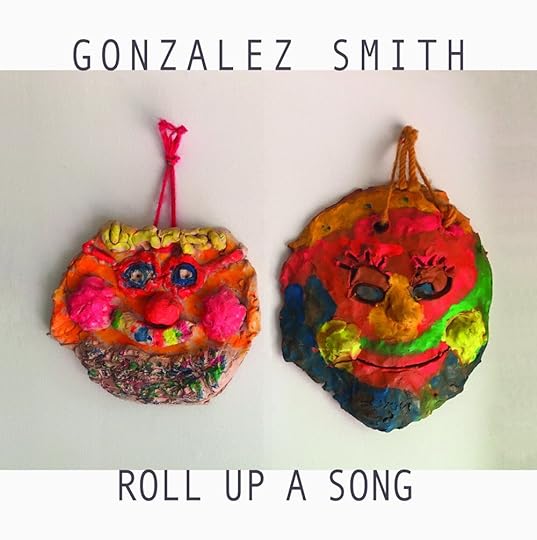
Smith’s lyrics rest somewhere between irreverent and touchingly melancholy, a difficult trick to pull off successfully. An air of innocence here and a wink there, the songs on Roll Up a Song provide a delicate balance to keep the lyrics from veering too far either way. Such balance is underlined by Gonzalez, who gives Smith’s lyrics memorable and sugar-sweet melodies throughout while adding the perfect musical accompaniment.
Gonzalez provides all the vocals and instrumentation except for Sean Percell who handles the drums on “She’s My Girl” and “Gelato”; DBT drummer Brad Morgan, who adds his kit to the driving title track; and Eddie Gilkin, who contributes congas to “She’s My Girl”. Chris Grehan mixed while adding acoustic guitar and Danelectro 6-string bass, horns were handled by E. Clay White, while Brent Cash provided string arrangements.
The pristine power pop on Roll Up a Song offers a cushion for lyrics that force a smile when describing a girl with “Farrah Fawcett hair” or that wish the narrator could sing like “Lindsey Buckingham” (while successfully aping the song’s namesake’s singular style). “Good Morning, Irene” answers the unasked question of what may have happened the morning after Leadbelly bid her goodnight. “Did We Make Love?” gets so silly that Gonzalez cracks himself up on a line that finds us laughing along at the same time.
Moments like that, simple yet charming, can be found all over Roll Up a Song. It’s an album that offers a glimpse into a time when great pop music could be found blasting from AM radios all over when smiles and singalongs didn’t seem as hard to come by.
October 23, 2023
John Howie, Jr. Gets Personal
This feature was originally published in No Depression on September 15, 2018
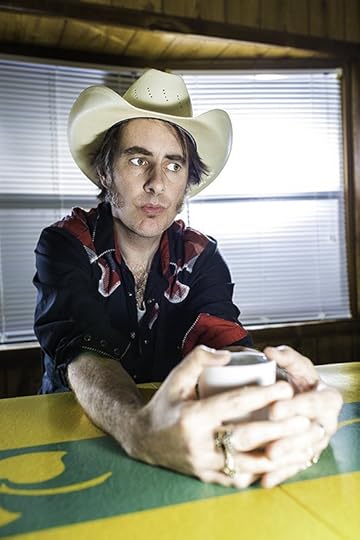
Photo: Kevin Clark
THE CICADAS WERE OUT in full force, buzzing in celebration as the August summer heat had mercifully subsided, at least for a few days. I ordered coffee (black) and took a seat at a tiny round table outside Caffé Driade, a charming outdoor java house and wine bar nestled in a cradle of trees off Franklin Street in Chapel Hill, NC.
About 5 behind, apologies.
That’s the text I receive seven minutes before the scheduled meet up. Such is the norm for John Howie, Jr. (not his tardiness but his politeness), the voice of the Two Dollar Pistols as well as the Rosewood Bluff, and a southern gentleman who doesn’t want to keep you waiting. I don’t mind.
We’re meeting to discuss Not Tonight – the first album to bear only his name and his first for Suah Sounds – the inspiration behind it, navigating a music career as a single parent, and his journey from punk rock drummer to honky-tonk frontman.
Howie comes across as approachable, accommodating, confident yet humble. He’s also blessed with a natural baritone that’s perfectly suited for country music. We’re talking pure honky-tonk country. The kind my grandma would tap her foot and nod her head to while I was helping her shell peas at the kitchen table, the radio tuned to Danville, VA’s WAKG, “Country Sunshine” (the only FM country station we could pick up in our part of North Carolina in the late ‘70s). She loved Webb Pierce, Mel Tillis, Tammy Wynette, and Loretta Lynn. Charley Pride was her favorite, but if it had a pedal steel, chances are she’d approve, as she undoubtedly would of Not Tonight.
Howie was exposed to country music early on in a similar fashion (in fact, we realize, as kids, we were both in the crowd to see Jerry Reed perform at the NC State Fair in the late ’70s at the height of Smokey and the Bandit-mania), though not through his granny but his dad. We’ll get to that later.
With the Two Dollar Pistols and the Rosewood Bluff, Howie writes and performs songs that require a sawdust floor, a jukebox, and a sympathetic ear. Now, with his first solo outing, he’s delivered another album that can stand alongside the greats in (the now defunct) Ernest Tubb’s Record Shop on Broadway in Nashville.
The genesis of Not Tonight can be traced back to a winter snow in early 2015. “I got snowed in with my dog at my then-girlfriend’s house out in the woods in Chatham County,” Howie remembers. Full disclosure: he’s referring to current Bloodshot recording artist and rising alt-country/Americana star Sarah Shook. When two songwriters are snowed in with guitars, what else is there to do but write songs? Shook heard a tune he was messing around with, the Not Tonight track, “Happy.”
“She asked me, ‘What are you gonna do with that?’ I said, ‘I don’t know. It doesn’t fit the Two Dollar Pistols or Rosewood Bluff, it just doesn’t have that kind of sound.’ She said, ‘I really like it,’ and when you’re a songwriter and someone else you really admire as a songwriter says they like what you’re doing, it kind of changes the way you look at it. She said, ‘Well, if it doesn’t fit on one of your records, why don’t you make a solo album?’ That had never occurred to me, for whatever reason – after at that point almost 20 years of making records as a singer-songwriter leading bands – to just try something on my own away from that format. After she gave me that idea, I really got excited, so it’s not something I can initially even take credit for.”
What Howie can take credit for is creating a true modern-day country classic. Not Tonight is a crash course on how to craft the sound of heartbreak. From the George Jones-inspired opener “Wish My Heart” to the closing title track, which glorifies procrastination and wallows in self-pity while somehow still sounding hopeful, Not Tonight may be all smoke-filled honky-tonk regret, but it somehow pulls off the difficult trick of sounding self-assured while displaying an open vulnerability.
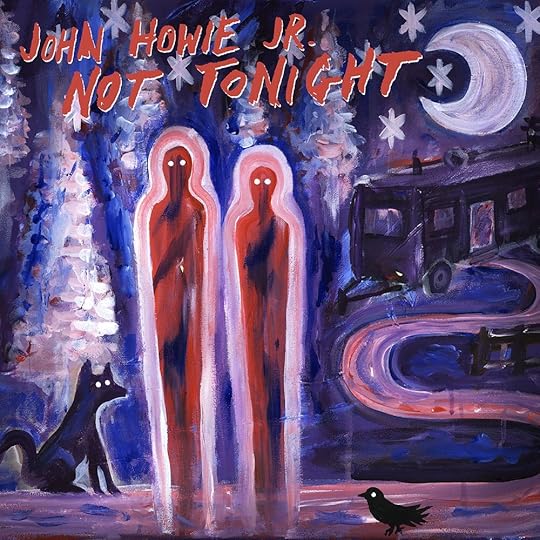
Cover art for ‘Not Tonight’ by Todd W. Emmert.
“Right after this conversation,” Howie continues, referring to where Shook gave him the idea for the solo album, “my personal life took a nosedive. All of a sudden I had the inspiration to write all these songs and write about my life.” By the time Shook and her band the Disarmers (for whom Howie played drums at the time) entered the studio in April of 2015 to record the critically-acclaimed Sidelong, he had written seven songs. “Totally completed. Not recorded, but I had finished them, which is really unusual for me in a one-to-two-month period. I may have ideas for songs but having that many completed and ready to be recorded in that short amount of time has never happened to me before.
“My personal life took a nosedive. All of a sudden I had the inspiration to write all these songs and write about my life.”
“I was living in this condo at the time and I would get up in the middle of the night with my dog and we would go downstairs to the kitchen and I would get out my guitar. ‘Back When I Cared’ I wrote in the middle of the night. Finished it. ‘I Don’t Feel Like Holding You Tonight,’ same thing. ‘Not Tonight’ I wrote before I went to bed one night. They were just pouring out at that point. I didn’t have to force them or think about them or really even egg them along. It was more like, ‘How fast can I write these down?’ Those are the ones you’re fortunate to get. That’s not usually the way it happens for me, but in this case, it was such an intense deal writing about an intense relationship, they just poured out.”
Then, Sidelong took off, putting Not Tonight on hold. “I knew what was going to happen with the Disarmers,” he discloses. “I knew what they wanted from that career, all those bells and whistles and everything, so I wanted to go ahead and get some stuff down on tape.” In early April, Howie entered Kudzu Ranch, the studio belonging to legendary Southern Culture on the Skids frontman Rick Miller (also producer of Not Tonight) – where Howie has recorded since the Two Dollar Pistols’ You Ruined Everything in 2001 – and laid down acoustic guitar over a click-track to three or four songs “just to get something down on tape so I would be motivated when I had the chance to go back and start adding things.
“It’s just a great, funky, old studio,” Howie says about Kudzu Ranch. “It’s a converted garage and all of Rick’s instruments are there. He had just bought a 1962 Stella acoustic 12-string like the kind Leadbelly played and I ended up playing that on ‘Wish My Heart.’
Miller first produced Howie on the Pistols’ Here Tomorrow, Gone Today in 2007. “When you’re making records with someone, you’ve got to feel comfortable on a lot of levels and obviously this record was very personal, very confessional lyrics…(Rick’s) really good at walking the line between giving you ideas, making suggestions, and not forcing them upon you.” A good producer is like a good psychiatrist, Howie believes. “They’re not going to give you advice, they’re going to make you feel like you got there on your own.”
Honky-Tonk Punk RockerHowie’s first love was drums. “I started playing drums in 1981, so I would’ve been 12,” he remembers, “and I did that forever. I had written some songs for bands I was in – bands like Finger – but I was mainly a drummer for people.” Howie played drums for Chris Stamey and Chapel Hill’s June, whose version of Roger Miller’s “I’ll Pick Up My Heart (And Go Home)” seems to have paved the way for what came next.
Brad Rice, who has played guitar with Raleigh legends the Accelerators, the Backsliders, and Whiskeytown, as well as many national acts over the years, was there at the earliest stages of Howie’s songwriting development. “Going all the way back when we played in Finger, John could take whatever kind of stuff he might be going through and make it into a song with some depth and weight,” Brad remembers. “He was never faking it.”
During that time, in his mid-20s, Howie discovered he wanted to try his hand at more songwriting. “Right around 1995, I sat down with my dad’s acoustic and decided to just let the songs come out, and when they did, they came out as George Jones imitations.”
Yet being a country singer was not always Howie’s goal, nor was he always a country music fan. “I grew up hearing that stuff a lot. My dad was really into Waylon, Willie, Merle Haggard, as well as the blues. Dad was from Mississippi, so he loved folks like Howlin’ Wolf. My mom was a jazz piano player and that’s all she listened to; Bill Evans and Oscar Peterson, Sarah Vaughan and stuff like that.”
By the time Howie became a teenager, he did what all teenagers do. He found his own music. “You know, Sex Pistols, Ramones. There was nothing for me to rebel against, I just didn’t want to be associated with what my folks’ tastes were.” In his late teens, Howie “dropped out of college, worked part-time at the tax department, bought a ticket, and bummed around Europe playing drums for a punk band.
“The leader of that band was really into Johnny Cash, and I had just gotten into the Burrito Brothers – this was around ’88 – and he was the first person I’d met around my age who liked the same stuff I did and also the kind of stuff my dad liked, which I kinda needed someone who wasn’t from my dad’s generation to say, ‘no no, it’s ok!’ and once that happened, I fell in love with it.”
Excited that his son was sharing his musical tastes, Howie’s dad helped to educate him on good country music by making tapes of Dwight Yoakam, Steve Earle, and Lyle Lovett, in addition to Haggard, Jones, and Willie. “He would tell me, ‘now that image you have of Buck Owens (as solely the cornball host of Hee-Haw) is not right” and history lessons of the Bakersfield sound would no doubt commence.
“Right around 1995, I sat down with my dad’s acoustic and decided to just let the songs come out, and when they did, they came out as George Jones imitations.”
Howie’s immersion into country music seemed to coalesce with the emergence of the alt-country scene in the Triangle Area (the Raleigh-Durham-Chapel Hill area of North Carolina) in the early ‘90s when bands like the Backsliders were making waves and starting to attract attention from labels and press outside the area looking for the next Seattle.
“I saw one of the Backsliders’ first shows in 1992. I was in Raleigh practicing with Finger and the bass player said, ‘there’s a band playing downtown that’s into the same kind of music you like, like Gram Parsons and Buck Owens, that kind of thing,’ so I went to see them. At that point, they had Bob Ricker on pedal steel and they blew me away, man. I had never seen anyone that wasn’t at least 20 years older than me at that point playing that kind of honky-tonk music. When I saw that, it kind of planted the seed that maybe I could do that too, even though it took a few years to get it together. You don’t want to do something like that half-assed.”
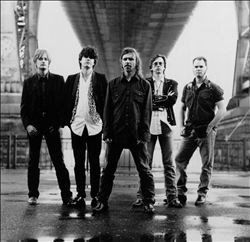
The Backsliders, circa 1997. l-r; Danny Kurtz, Brad Rice, Chip Robinson, Steve Howell, Jeff "JD" Dennis
“There were no other bands like us at the time in the Triangle Area,” recalls Steve Howell, co-founder and guitarist of the Backsliders. “We were shooting for the Burrito Brothers thing pretty heavily. Pedal steel and all at first. The two-guitar dominated sound (with the addition of second guitarist Rice) was several years after we first started. The first couple of Dwight albums lit the torch for me. It seemed like a breath of fresh air.”
That hip neo-traditional sound Dwight Yoakam took mainstream in the mid-‘80s indeed seemed to validate groups that had been merging punk, ‘60s garage-rock, and honky-tonk for years in the underground. By the ‘90s, bands like Uncle Tupelo were combining the sound of punk with traditional country, helping to create what was to be branded alternative country, and the Triangle Area of North Carolina appeared to be ground zero for the alt-country movement.
“I finally got it together around ’95,” Howie remembers, “and started meeting like-minded musicians. I’m sure that whole Whiskeytown thing helped because it was on people’s radar all of a sudden. Violinists became fiddle players.”
The Two Dollar Pistols were formed that year and released their debut, On Down the Track, in 1997 – a watershed year for the Triangle music scene. That same year saw the release of the Backsliders’ first studio album, Throwing Rocks at the Moon on Carrboro’s Mammoth Records, produced, as luck would have it, by Dwight Yoakam’s guitarist and producer at the time, Pete Anderson. Also released in 1997 was the Whiskeytown classic, Stranger’s Almanac, of which Backsliders Brad Rice and Danny Kurtz would later tour behind as members of Whiskeytown. Incidentally, the first drummer for the Two Dollar Pistols, Chris Phillips, also drummed for the Squirrel Nut Zippers, whose critically acclaimed Hot – on Mammoth – went platinum in ‘97.

Cover of ‘Step Right Up’, Yep Roc Records, 1998
“When John started the Pistols, I recognized a kindred spirit,” admits Howell. “I got them on the bill with us whenever I could. Flash forward a few more years and there I was helping him make the (Pistols) live album Step Right Up (in 1998, their first for Hillsborough, NC label, Yep Roc). I have very fond memories of that period.”
The Two Dollar Pistols took a break in 2008 and Howie formed the Rosewood Bluff, a group that was perfectly suited to act out his vision of honky-tonk stompers, barroom weepers, and southern soul workouts. Releasing two critically acclaimed albums (so far), 2011’s Leavin’ Yesterday and 2014’s Everything Except Goodbye, they have also shared the stage with legends like George Jones and up-and-comers such as Shovels and Rope. (Members of the Rosewood Bluff, the Disarmers, and Raleigh’s own Tonk all appear on Not Tonight.)
Despite being smack dab in the middle of all the action – being in the exact right place at the exact right time – Howie wasn’t in it for the fame and fortune. “Much to the chagrin and frustration of musicians that have played with me, record companies, managers…and one of the reasons I left the Disarmers, is that that has never been what I want from it, man. I’m not saying that makes me better than people who do want that. I just want to write songs and I want them to sound the way I want them to sound and I want a band to sound a certain way and I want a record to sound a certain way.
“I mean, Two Dollar Pistols did SXSW a couple of times, but,” he paused, choosing his words carefully, “it’s a weird place to be. Do I want people to hear the music? Of course, I do. There’s a lot of music I wouldn’t have found out about had those people not have been ambitious and pushed it and all that but…the record music industry…and especially with social media – making sure you take your selfie with the right person – I just have no interest in that. Especially now at 49, I’m at the point where it’s ‘what you see is what you get,’ y’know? Take it or leave it.”
Priorities ChangeTo be clear, Not Tonight is not John Howie, Jr.’s Blood on the Tracks. When asked about any possible similarities, he thinks for a moment, then shares, “I don’t know. Records like that and Sea Change by Beck…I love those records and they’re clearly about (the ending of their respective relationships), but this record might be a little different in that it was written in real time. It’s not like a relationship ended then I went and wrote a bunch of songs about it. When I left the Disarmers and my relationship of four years with Sarah Shook ended, I had eight of the ten originals on this record already written over a two-year period. What I realized at that point was that I did have this record that sort of documented, in its own way, the demise of this relationship.
“You know, you face problems in relationships and they’re either bumps in the road or they’re the start of the end, and these (problems) were apparently the start of the end.
“I couldn’t make it work,” he confesses when asked about being a couple working together in the same band. “I know people in that situation that have figured out how to make that work, but it’s not gonna work for me.
“There were a lot of issues. I mean, I was probably already going to have to bow out (of the Disarmers) because I’m not comfortable as a single parent being away from my son for three or four months at a time. I’m just simply not OK with that. I mean, when you’re a single parent, you’re only seeing them half the time, so if you then don’t see them for two or three months … you do the math. That’s not the kind of relationship I want to have with my child – and my son and I are tight. I have full custody at this point. I have a good set up now where I can go out on weekends and do my thing, but two months – that’s a whole different deal, man.”
No other song on Not Tonight takes on heartbreak and loneliness quite like the lyrically pointed “Underground.” “That song is about recognizing that there are some things that you just can’t go back to,” Howie admits. “My girlfriend at the time started working at a bar in town that I had worked at for eight years. I had stopped going there unless I was playing because I had a kid and I wasn’t going out that much anymore. When she started working there, I went there to hang out with her some.” He discovered, with a couple of exceptions, most of the people that used to frequent the bar when he worked there, had been replaced by a younger crowd. “But it was all the same bullshit, all the same, dumb stuff going on, always someone talking about getting drunk and trying to kiss someone else that they shouldn’t be kissing…you know, just…the drama, man!
“Part of that was me recognizing that I don’t belong there anymore. Being entrenched in that world was something I no longer wanted. You know, when you work in a place like that, it becomes a big part of your life, and ‘Underground’ is just about me revisiting that and being amazed at how much that world meant to me at one point and how little I want to do with it now. I’m getting older, you know? I’m recognizing that priorities change, interests change, and what you’re willing to deal with changes.”
“When I’m Not There with You” is a sawdust-layered country two-step recorded with the Two Dollar Pistols. “One of the cool things about this record taking as long as it did,” Howie explains, “is that had I recorded that song back in 2015, they wouldn’t have been on it because I wasn’t in contact with them then.” Alec Ferrell, whom Howie befriended through Durham, NC hip-hop artist/poet Shirlette Ammons, adds a tastefully dirty guitar solo on “Wish My Heart” and handles bass on one of the highlights of the album, “Never Could Say Yes.”
“’Never Could Say Yes’ was the last song I wrote for the album,” he recalls. “That’s the one you write when you wake up the next morning and you grab your phone and you say, ‘Oh, that’s right, I’m not gonna hear from this person I’ve been hearing from every day for that last four years. It’s confusing and it’s shattering and all of that, and at least for me, very painful for a while.” The track incorporates a drum machine which underscores the song’s hypnotic groove. Add to that the subtle ABBA-like backing vocals and you have a modern classic that wouldn’t have sounded out of place on one of Dwight Yoakam’s mid-90s albums.
The lone cover on Not Tonight is an inspired take of Cat Stevens’s “Maybe You’re Right” that reveals a slowed-down hillbilly blues inside the original’s folk-with-strings arrangement. It’s one of Howie’s strongest vocal performances to date. “I had been playing that song just around my house since I first heard it when I was 31, 32 years old, and lyrically it fits so well with the rest of the record I decided to put it on there.”
I ask if the process of writing the songs for this album was cathartic in any way. “I always feel better when I write a song I’m happy with,” he answers, then pauses, considers his words, then adds, “You know, you’re not going to walk away from four years of family, living together, a couple of bands…you’re not going to get away from that overnight.”
“I’m somebody’s dad. I write songs and make records, you know? Those are the priorities for me.”
Through it all, Howie is still able to put everything in perspective. “Relationships end,” he said. “I’m in a fortunate place. I’ve lived in Chapel Hill since 1991. I’ve been married twice. I’ve had 10 or 12 relationships, and I’m on relatively good terms with all of them. Relationships are messy. People get upset, they get angry, they get pissed off, they get bitter.” Yet, he’s found what’s important in life for him, and he’s taking stock of where he’s been and enjoying where he is now. “I’m somebody’s dad. I write songs and make records, you know? Those are the priorities for me.”
As for Not Tonight, Howie is pleased with the results. “I’m really happy with it. It definitely is something I felt like I needed to do. I’m very grateful to my ex-girlfriend for encouraging me and coming up with the idea. It’s got some of my favorite songs I’ve ever written on it.”
Asked if his son is cool with what his father does for a living, John Howie, Jr. doesn’t hesitate. “Yeah, he is. He has no interest, thank God. He listens to ‘70s and ‘80s R&B, or current music that sounds like that. That’s all he wants to listen to. As of this morning, he wants to be a geneticist and/or a paranormal investigator, at eleven years old,” he laughs, “and I’m good with either one of those.”

Photo: Kevin Clark
John Howie, Jr. and the Rosewood Bluff will be performing this Friday night (October 27th) at the newly relocated and expanded Wake Forest Listening Room in Wake Forest, NC. Doors will be at 6:45 and the show starts at 7:30pm. Click here for tickets and more information.
March 23, 2023
Waiting for the Call
The DeFactor Brothers return to pay tribute to one of their own, drummer Chris Garges, on the follow-up to the benefit project, ‘Be Good To Yourself.’

In 2022, a group of North Carolina musicians contributed to a project that benefitted musicians in need, called Be Good To Yourself. (You can read my review for PopMatters here.)
Now come’s the follow-up, Waiting for the Call.
This is a remarkable project.
Last month, I was honored to be invited by Ed Bumgardner and Rob Slater (two members of the DeFactor Brothers, the group that assembled to create last year's 'Be Good To Yourself') to a listening session of 'Waiting for the Call'. The album is a 13-song celebration of the life of Chris Garges, a drummer/producer/artist that was an inspiration to all who knew him, and many who didn't. I was then asked to contribute a piece for the website. I humbly obliged.
I'm so glad this incredible album is now out in the world. It contains some of my home state's greatest talent, both legendary and soon-to-be. Listening to this project I come away with two feelings: how proud I am to be a Tar Heel, and touched by how so many people will come together to pay tribute to a fellow musician and, more importantly, a fellow human being.
Like the DeFactor Brothers' previous project, 'Be Good To Yourself,' all proceeds go to the SIMS Foundation, a non-profit organization devoted to helping uninsured NC musicians in need of mental health treatment.
Chris Garges, like so many others, was a victim of cancer, but he did not allow it to define him. Cancer is a horrible disease. On that, we can all agree. And unfortunately, death is something none of us can stop. We must answer that call when it comes. What matters, and what makes us all who we are, is how we choose to spend our time as we're waiting for it to come.
I hope you spend some time with this phenomenal celebration of a life that marched to a beat of its own making.
To order the album and to find out all about the project, click here .
March 4, 2023
Remembering Doc Watson
Thoughts on the North Carolina-born legend on the 100th anniversary of his birth.

There’s really nothing more pure to this North Carolina boy than the voice and guitar of Arthel Lane “Doc” Watson. I’ve heard his style of music my entire life and didn’t realize until I was much older what an impact he had made on the rest of the world. Once I did, however, it made complete sense. To these ears, everyone else sounds like they’re trying to emulate that natural feel, that sound, that soul, that came so effortlessly to Doc and those of his ilk.
I was blessed to have grown up around a variety of bluegrass and folk musicians that, while they may not share Doc’s unique talent, draw from that same well. It’s something about the folk music that flows from the Blue Ridge Mountains down to the blues of the Piedmont and on to the beach music of the coast that can’t be so easily articulated, but you know it when you hear it. It’s a genuine reflection, and result, of the landscape of this state, and Doc Watson embodied the best of it.
I also felt a tertiary kinship with him, since he attended the Governor Morehead School when he was young, and I utilized their large print books while I was in school. The fact he was self-taught and identified so strongly with the music he heard resonated deeply to this half-blind, music-obsessed only child.
Probably my most played collection of his over the years is the generous and comprehensive overview, Memories, that was released on United Artists records in 1975. The Sugar Hill label when it was still in Durham, NC, reissued it on CD in 1993.

It would be a tough task to find a song that perfectly represents what Doc was all about, but this performance comes close…
Instead of writing 3,000 words on such a towering figure (many great writers have done a much better job of that already), here’s a fascinating Doc doc (sorry) that dates back to 1976 when the BBC came over to NC for a profile on him. It’s at times hilarious to hear the Brits marvel at the culture of the area, but it ultimately fills me with pride to see him - and this music - appreciated and loved by so many the world over, and for so long.
Finally, Fresh Air’s tribute to Doc Watson (below) is also well worth your time.
Happy birthday Doc, and I hope you’ve been pickin’ up a storm with Merle since y’all’ve reunited.
February 8, 2023
‘Wandering Spirit’ Turns 30
Celebrating Mick Jagger’s third - and best - solo album on its 30th anniversary.

When “Sweet Thing” was released to radio in January of 1993, it sounded like the Club 54/Emotional Rescue-era Mick Jagger, but with more bite and snarl. The wacky falsetto was there, but it was less camp; it had intent. It was older and wearier. It didn’t have time for bullshit.
Set against pounding club-ready drums and percussion from Curt Bisquera and Lenny Castro, respectively, and driving bass from Living Colour’s Doug Wimbish (whom he’d joined just the year prior), “Sweet Thing” was the first taste of what would become Jagger’s most consistent album to date, the sprawling Wandering Spirit, released February 8, 1993, on Atlantic Records.
Jagger enlisted Rick Rubin to co-produce and Wandering Spirit has Rubin’s fingerprints all over it. There’s hardly a hint of reverb. Everything is upfront, dry as a bone. The snare pops, the bass rumbles, and the rhythms are incessant throughout.

At the time of its release, Wandering Spirit fit right into the aggressive sounds that the grunge and alternative rock movements had brought back to rock radio. Not down-tuned guitars or angst-filled lyrics, it was more the aggression of the production. The return of the in-your-face aesthetic of the hard rock of the 1970s was one of the positives of Seattle’s influence. The thin digital production of the 1980s had finally been put to rest.
As for content, Jagger sharpened his pen and gave us ten originals (two co-written with Jimmy Rippentoe) that matched the intensity and durability of the four covers. Of the originals, one of his most powerful, soulful ballads became the set’s second single, “Don’t Tear Me Up.”
From hard rockers “Wired All Night” and the manic paranoia of “Mother of a Man,” the hard soul of “Don’t Tear Me Up,” and the well-chosen covers of Bill Withers’ “Use Me” (a preening and sneering duet with Lenny Kravitz) and the fantastic “I’ve Been Lonely For So Long” (a 1972 hit for Frederick Knight) to the gospel-pop sensibilities of “Hang On To Me Tonight” and third single, “Out of Focus,” Wandering Spirit is Jagger’s most eclectic album outside of the Stones, and unlike his previous efforts, everything here works.
Wandering Spirit was recorded at a time when the Stones had ended their relationship with Sony and were moving to Virgin (which would release Voodoo Lounge the following year). In the meantime, Jagger went back to Atlantic, which had distributed Rolling Stones Records in the ‘70s, for this one project.
Interestingly, Jagger was recording Wandering Spirit (over a seven-month period in 1992) at the same time Keith Richards was laying down tracks for what would become Main Offender. Pairing those albums together may make an interesting - and intense - alternate-universe Stones album.
As it stands, however, we pretty much did get that wish, as Voodoo Lounge contained the dark, raw mojo of Main Offender and the rocked-up side of Jagger’s pop tendencies - the best of both worlds.
Back to Wandering Spirit, Jagger dug back into his love of country music for the incredible “Evening Gown.” Jagger’s attempts at country can be overly camp and mocking at times, but with “Evening Gown,” he recorded one of the best country songs of the early 1990s. Country radio completely ignored it, preferring to pummel listeners with scootin’ boots and achy-breaky hearts.
In the years since, Wandering Spirit has kept itself on the periphery of the culture with the help of the likes of Jerry Lee Lewis, who included “Evening Gown” on his fantastic 2006 comeback album, Last Man Standing, with Jagger adding call-and-response vocals and Ron Wood on guitar. It ends up surpassing the original.
And most recently, country hitmaker Miranda Lambert took ownership of the gospel-fueled title track on her 2022 album, Palomino.
Lambert’s version is faithful to the original, which is appropriate, considering it falls right in line with Jagger’s fascination with what he calls “agnostic gospel" songs. One could draw a through-line, in fact, from “Sympathy for the Devil” to “Wandering Spirit” and on through “Saint of Me” from the Stones’ 1997 disc, Bridges to Babylon - and it stands as tall as either of them.
As Wandering Spirit hits 30, the Stones are (still) working on their first studio album of original material since 2006’s A Bigger Bang. It’s also good to hear that Charlie Watts’s parts will be included. So he’ll be present on the album in more than just spirit…wandering or not.
Solo Jagger would return in 2001 with the more of-the-moment Goddess in the Doorway (what Keith Richards famously renamed, Dogshit in the Doorway). It had a few high points, but it couldn’t match the intensity of Wandering Spirit. 30 years on, and 60 years into his career, Jagger still sings like he has something to prove. And we wouldn’t want it any other way.



